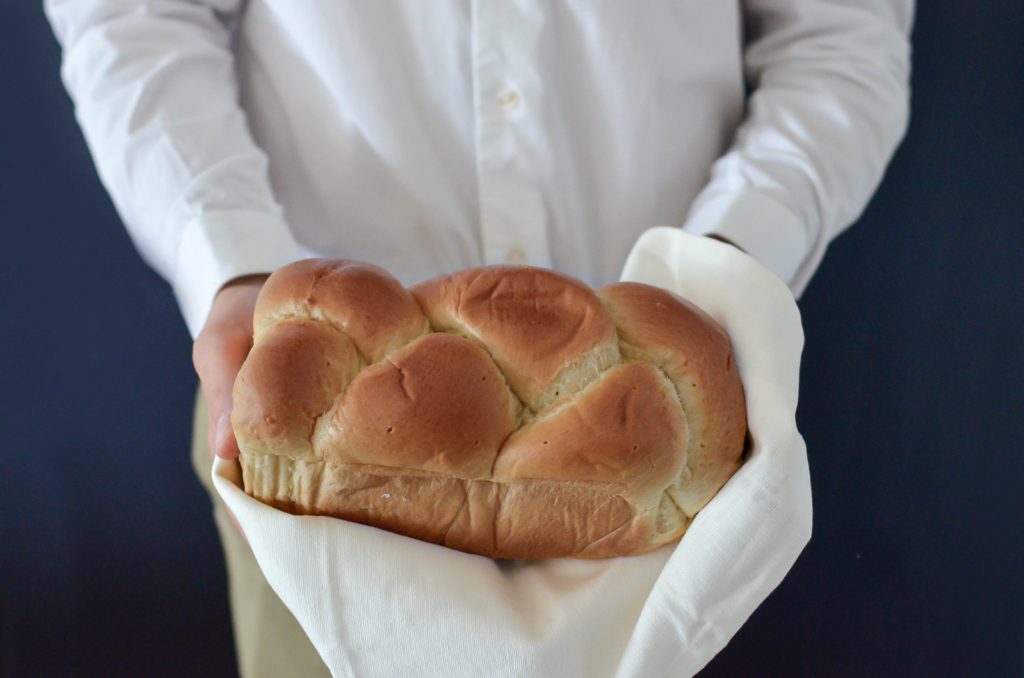
Brazilian Slang: 8 Food Idioms Every Portuguese Learner Must Learn
Brazilian Portuguese is jam-packed with idioms and expressions that reflect their culture. As you may have guessed, the most common Brazilian sayings are about soccer, religion, and food!
Today, we will go over 8 Brazilian food idioms that you simply cannot miss!
8 Brazilian Food Idioms that You Can Use Every Day
In this section, we break down 9 Brazilian sayings about food that you can incorporate into your daily vocabulary, along with some Brazilian history and fun facts!
1. Colocar a mão na massa
Literally: To put your hand in the dough.
Brazilians use this expression to mean work, or “get your hands dirty”, since working with dough is usually a messy, sticky process. It can also be a call to action to change someone’s behavior, similar to “get to work”.
“Está na hora de mudar esse país. Vamos todos colocar a mão na massa.”
“It is time to change this country. Let us all get to work.”
2. Panela velha é que faz comida boa

Literally: An old pan makes good food.
It means the older you get, the better you get. It is similar to the English saying “you age like fine wine”.
3. Pão duro
Literally: Hard bread.
You can use the Brazilian saying pão duro to express someone who is stingy, cheap, or tight-fisted (also see mão-fechada, or “closed hand”). The legend goes that there was a Brazilian beggar who asked for food every day. He would accept anything to eat, even stale bread. When he died, everyone found out that he was actually a very wealthy man – he just so happened to be a stingy one.
4. O ganha-pão

Literally: The breadwinner.
Brazilians also have this same saying to designate the main provider of a household.
Minha mãe é o ganha-pão.
“My mom is the breadwinner.”
5. Reclamar de barriga cheia
Literally: To complain on a full stomach.
This Brazilian expression is used to describe someone who is fortunate or has a lot of money but spends all of his/her time complaining. It would appear that someone who complains on a full stomach has nothing to complain about (or in English, is expressing a first-world problem).
BONUS TIP: To sound more fluent when speaking Portuguese, when conjugating the verb estar, remove the es at the beginning. For example, ela está reclamando de barriga cheia = ela tá reclamando de barriga cheia. See how it plays out in the informal example below.
A menina tá triste porque queria o iPhone 12 e o pai comprou o iPhone 11 para ela. E eu aqui com iPhone 8. Tá reclamando de barriga cheia.
“The girl is sad because she wanted the iPhone 12 and her dad bought her the iPhone 11. And I’m over here with the iPhone 8. She has nothing to complain about!”
6. Ser criado a leite com pêra
Literally: To be raised with milk and pear.
In Brazil, there is a vitamina (smoothie) that can be made by mixing milk and pear in a blender. In the past, this particular delicacy was typically reserved for children of the upper class. Thus, we can assume that someone who was brought up drinking milk and pear smoothies had a very comfortable life (a.k.a spoiled).
Today, Brazil is a much wealthier nation than it was a few decades ago. Many families have increased their purchasing power and kids have more access to technology than ever before, thus creating a new generation called geração leite com pêra (generation milk with pear). It is widely used to describe millennial children who grew up with great affluence and is often used to refer to someone who has been extremely sheltered and would not know much about violence, pain, poverty, etc.
Na Vila Madalena só mora quem foi criado a leite com pêra.
“Only rich kids live in Vila Madalena.”
7. Encher a linguiça
Literally: To stuff the sausage.
The Brazilian saying encher a linguiça, also known as enrolar (to prolong or to stall) means to spout irrelevant or meaningless information. In English we might say “full of hot air”. Back in the day, only nobility and the upper class had access to fresh high-quality meat. If they wanted meat on their table, everyone else would literally stuff sausages with low-quality cuts and fillers.
O senador não falou nada, so encheu a linguiça
“The senator didn’t say anything, he was full of hot air.”
8. Sem sal sem açúcar
Literally: Without salt without sugar.
Something that is lackluster, boring, or dull.
A nova namorada do meu irmao é muito sem sal sem açúcar.
“My brother’s new girlfriend is really nothing special.”
Learning Portuguese with Idioms Helps You Sound More Native
Use the idioms above to sound more like a native and avoid sounding robotic! Need to learn Portuguese quickly on the go?
Try a free week of our proven Pimsleur method. Or test-drive a Free Lesson right now!
1 Comment for "Brazilian Slang: 8 Food Idioms Every Portuguese Learner Must Learn"